
Praia: The Heartbeat of Cabo Verde
Praia, the capital of Cabo Verde, is a vibrant city that offers a unique blend of African and Portuguese influences. Situated on the island of Santiago, it is the largest city in the archipelago and serves as the political, economic, and cultural hub of the country. As you stroll through the city, you'll notice its relaxed atmosphere, friendly locals, and a rich tapestry of music, food, and history. Begin your journey in the historic Plateau district, where cobblestone streets and colonial architecture take you back in time. Visit the Presidential Palace, the grand Nossa Senhora da Graça church, and the Ethnographic Museum to get a sense of the city’s past. Don't miss the bustling Mercado de Sucupira, where you can shop for local crafts, textiles, and fresh produce. For nature lovers, a visit to the nearby beaches such as Quebra Canela and Prainha is a must. These sandy shores are perfect for sunbathing, swimming, and enjoying the beautiful Atlantic Ocean. If you’re feeling adventurous, take a short trip to Serra Malagueta Natural Park for hiking and breathtaking views of the island's rugged landscape. Praia is also a culinary delight. Sample traditional dishes like Cachupa, a hearty stew made with corn, beans, and meat or fish. The local nightlife is vibrant, with numerous bars and clubs offering live music and a chance to dance the night away to the rhythms of Morna and Funaná. Whether you’re interested in history, nature, or just soaking up the local culture, Praia has something to offer every traveler. Its unique charm and warm hospitality make it a memorable destination for all.
Local tips in Praia
- Visit the Plateau district early in the morning to avoid the heat and enjoy a quieter experience.
- Always carry some cash, as not all places accept credit cards.
- Try local dishes at small, family-run restaurants for the most authentic flavors.
- Stay vigilant with your belongings, especially in crowded places like markets and public transport.
- Learn a few basic phrases in Portuguese or Creole; it will be appreciated by the locals.
Praia: The Heartbeat of Cabo Verde
Praia, the capital of Cabo Verde, is a vibrant city that offers a unique blend of African and Portuguese influences. Situated on the island of Santiago, it is the largest city in the archipelago and serves as the political, economic, and cultural hub of the country. As you stroll through the city, you'll notice its relaxed atmosphere, friendly locals, and a rich tapestry of music, food, and history. Begin your journey in the historic Plateau district, where cobblestone streets and colonial architecture take you back in time. Visit the Presidential Palace, the grand Nossa Senhora da Graça church, and the Ethnographic Museum to get a sense of the city’s past. Don't miss the bustling Mercado de Sucupira, where you can shop for local crafts, textiles, and fresh produce. For nature lovers, a visit to the nearby beaches such as Quebra Canela and Prainha is a must. These sandy shores are perfect for sunbathing, swimming, and enjoying the beautiful Atlantic Ocean. If you’re feeling adventurous, take a short trip to Serra Malagueta Natural Park for hiking and breathtaking views of the island's rugged landscape. Praia is also a culinary delight. Sample traditional dishes like Cachupa, a hearty stew made with corn, beans, and meat or fish. The local nightlife is vibrant, with numerous bars and clubs offering live music and a chance to dance the night away to the rhythms of Morna and Funaná. Whether you’re interested in history, nature, or just soaking up the local culture, Praia has something to offer every traveler. Its unique charm and warm hospitality make it a memorable destination for all.
When is the best time to go to Praia?
Iconic landmarks you can’t miss
The Pier of Santa Maria
Discover the beauty and vibrant culture at The Pier of Santa Maria, a coastal gem in Cape Verde, perfect for exploring, dining, and relaxation.
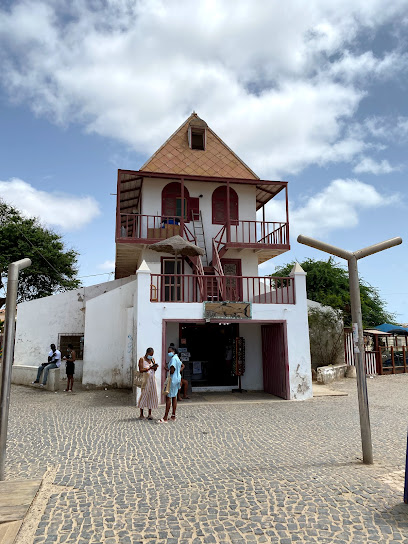
Sucupira Market
Discover the lively Sucupira Market in Praia, where vibrant culture, local crafts, and delicious cuisine come together to create an unforgettable experience.
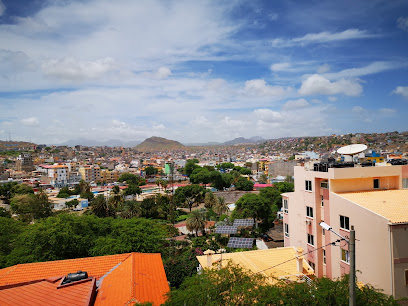
Pachamama Eco Park - Viveiro Botanical Garden
Explore the lush landscapes and rich biodiversity of Pachamama Eco Park - Viveiro Botanical Garden, a serene escape in the heart of Cape Verde.
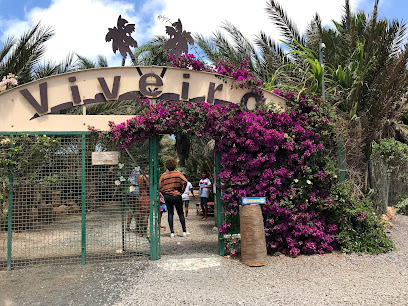
Quintal da Música
Experience the vibrant culture of Cape Verde at Quintal da Música, where delicious cuisine meets lively live music in Praia.
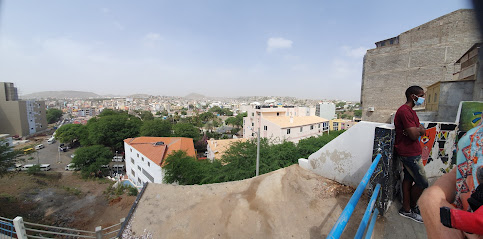
Pestana Tropico
Experience the perfect blend of luxury and comfort at Pestana Tropico, where stunning ocean views meet modern amenities in the heart of Praia, Cape Verde.
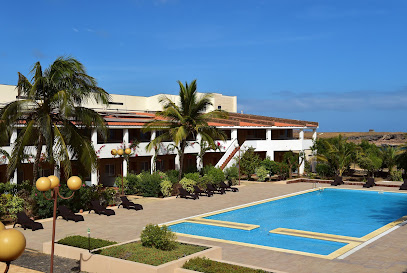
Kebra Cabana
Discover the vibrant nightlife and culinary delights of Kebra Cabana in Praia, the perfect spot for relaxation and entertainment in Cape Verde.
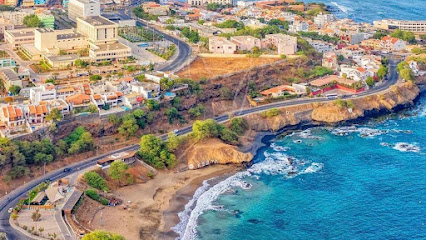
Praia da Atalanta
Experience the tranquil beauty of Praia da Atalanta in Cape Verde, where stunning beaches and vibrant nature meet to create an unforgettable getaway.
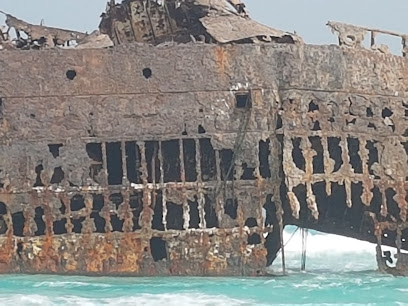
São Filipe Royal Fortress
Explore the rich history of São Filipe Royal Fortress in Cidade Velha, a captivating destination with breathtaking views and deep historical significance.
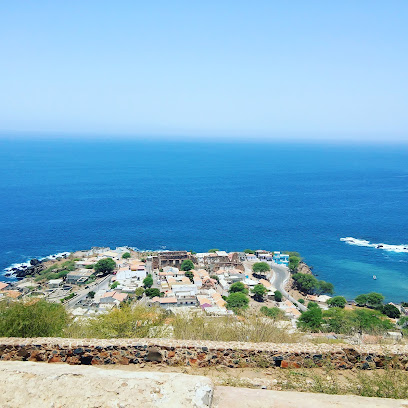
Parque 5 de Julho
Discover the serene beauty of Parque 5 de Julho in Praia, a perfect urban retreat for relaxation and cultural experiences.
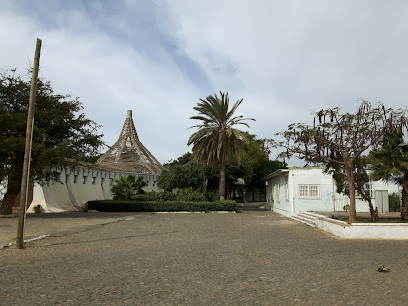
Discover santiago island
Discover the vibrant culture, stunning landscapes, and rich history of Santiago Island, the heart of Cape Verde.
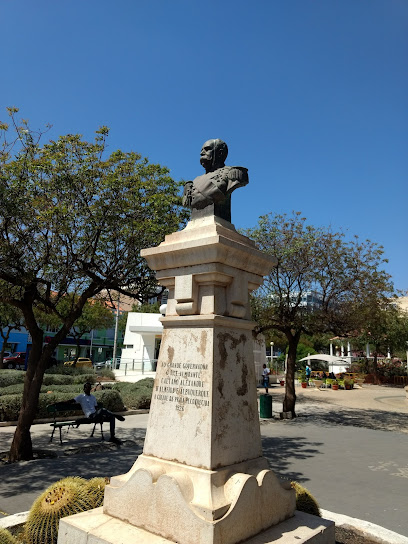
Pelourinho
Discover the historic charm and vibrant culture of Pelourinho in Cidade Velha, a UNESCO World Heritage site rich in history and local flavor.
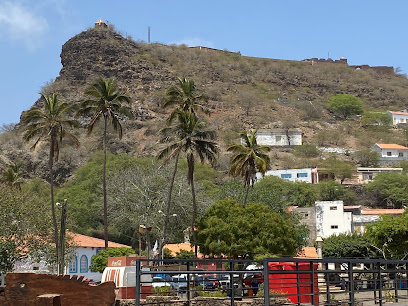
Bar Secreto Iberico
Experience the vibrant flavors of Cape Verde at Bar Secreto Iberico, a top gastropub in Praia known for its inviting atmosphere and delicious cuisine.
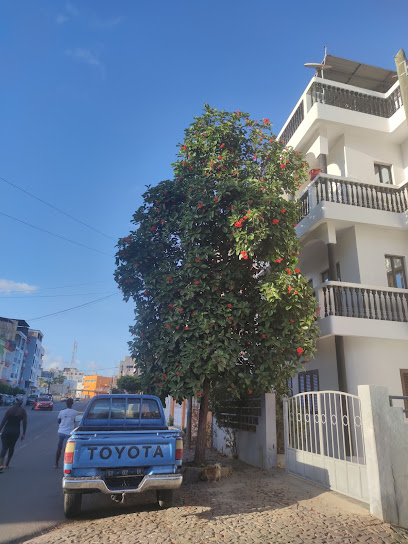
Pensão Benfica
Experience the charm of Cape Verdean hospitality at Pensão Benfica, your cozy lodging and restaurant in Praia.

Serra Malagueta Natural Park (Santiago)
Explore the natural beauty and rich biodiversity of Serra Malagueta Natural Park, a top destination for adventure and tranquility in Cape Verde.
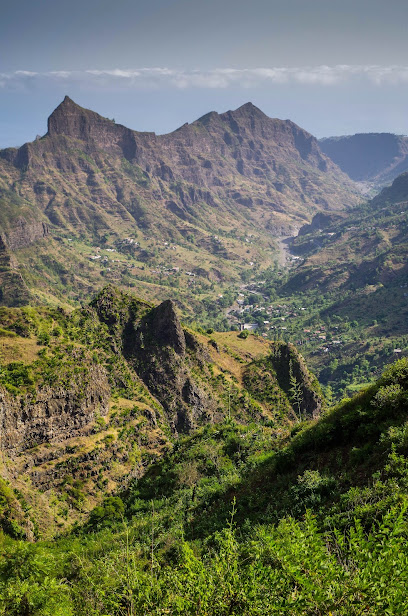
Roma - Ristopizza
Discover the vibrant flavors of Italy at Roma - Ristopizza in Praia, where authentic cuisine meets local charm for an unforgettable dining experience.
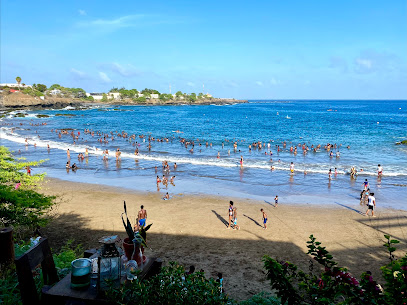
Unmissable attractions to see
Sucupira Market
Experience the vibrant culture and local flavors at Sucupira Market in Praia, Cape Verde, where shopping, dining, and community come together.
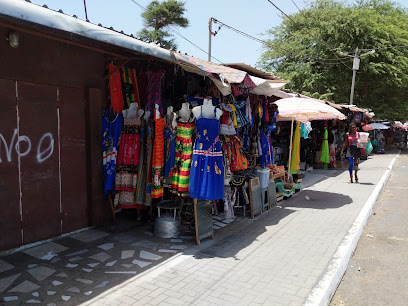
Tarrafal Beach
Experience the idyllic beauty of Tarrafal Beach in Cape Verde, where golden sands meet azure waters, creating the perfect tropical getaway.
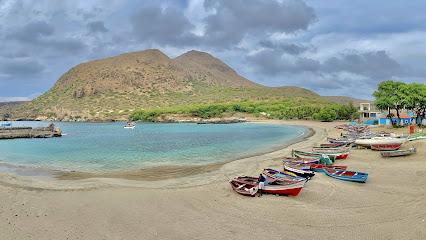
São Filipe Royal Fortress
Discover the rich history and stunning coastal views at São Filipe Royal Fortress, a must-visit landmark in Cidade Velha, Cape Verde.
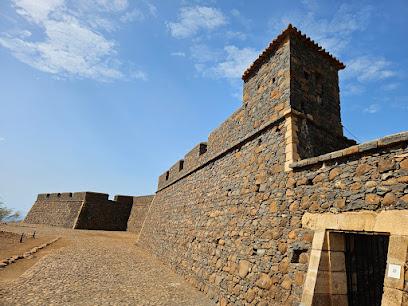
Lajinha Beach
Discover the serene beauty of Lajinha Beach in Mindelo, where golden sands meet crystal-clear waters for an unforgettable Cape Verde experience.
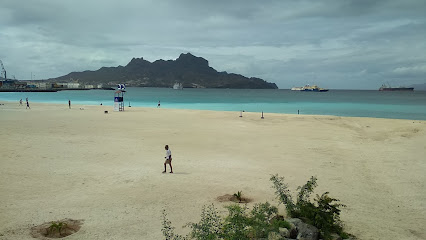
Parque 5 de Julho
Experience tranquility and natural beauty at Parque 5 de Julho in Praia, where vibrant flora and peaceful pathways await every visitor.
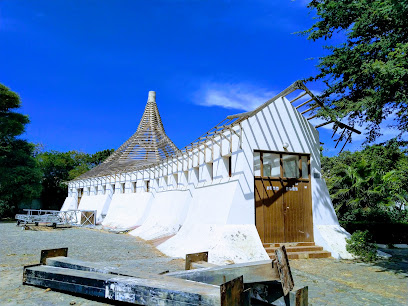
Pelourinho
Explore Pelourinho in Cidade Velha, a UNESCO World Heritage Site, and immerse yourself in Cape Verde's vibrant culture and rich history.
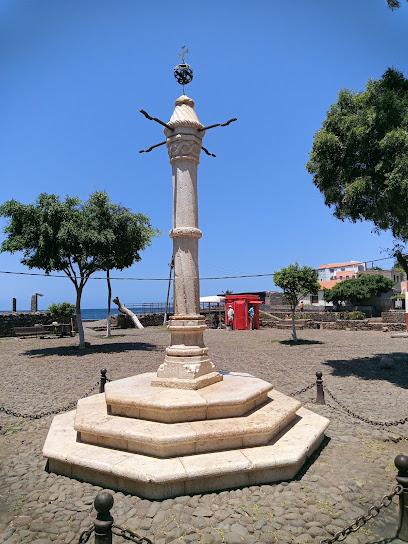
Serra Malagueta Natural Park (Santiago)
Explore the stunning landscapes and rich biodiversity of Serra Malagueta Natural Park, a natural gem in Santiago, Cape Verde, perfect for adventure seekers and nature lovers.
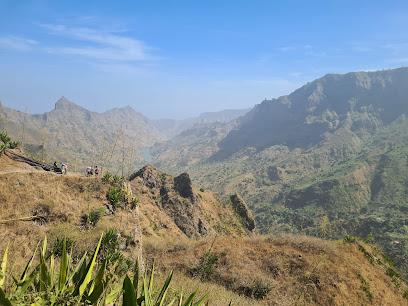
Presidential Palace
Explore the Presidential Palace in Praia, a stunning symbol of Cape Verde's rich heritage and vibrant culture, situated in the heart of the nation's capital.
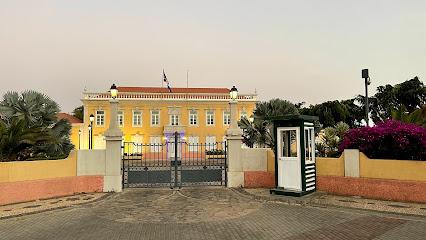
Matiota
Discover the beauty of Matiota Beach in Mindelo, Cape Verde, where golden sands and crystal-clear waters create a perfect paradise for relaxation and adventure.
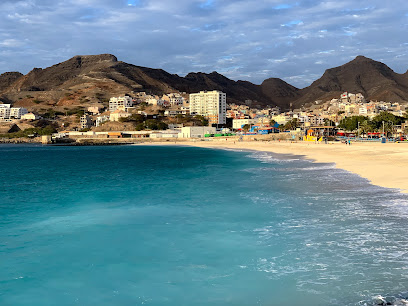
Resistance Museum
Explore the Resistance Museum in Chão Bom, a key destination showcasing Cape Verde's struggle for independence and cultural heritage.
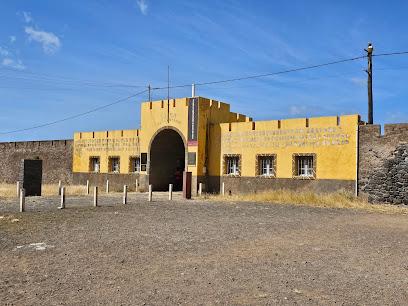
Lighthouse Dona Maria Pia
Discover the historic Lighthouse Dona Maria Pia in Praia, Cape Verde, offering stunning views and a glimpse into the island's maritime heritage.
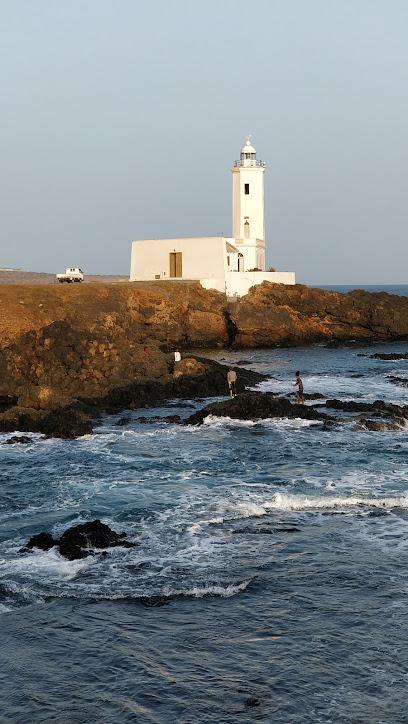
Fundação Amílcar Cabral
Explore the life and legacy of Amílcar Cabral, a revolutionary leader, at this cultural center in Praia, Cape Verde.
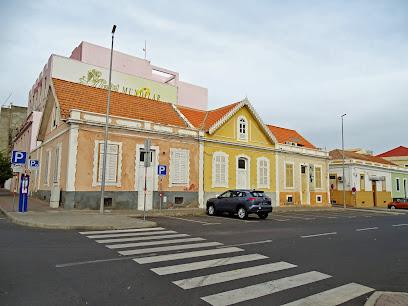
Nossa Senhora do Rosário church
Discover the stunning Nossa Senhora do Rosário Church in Cidade Velha, a historic gem showcasing Cape Verde's rich cultural heritage and breathtaking architecture.
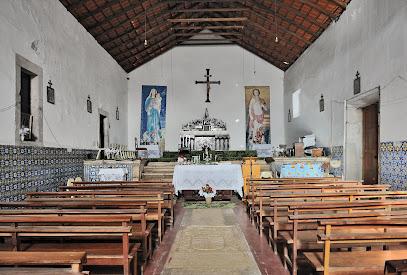
Pico da Antónia
Discover the breathtaking beauty and adventurous trails of Pico da Antônia, the highest peak in Cape Verde, perfect for nature lovers and adventurers alike.
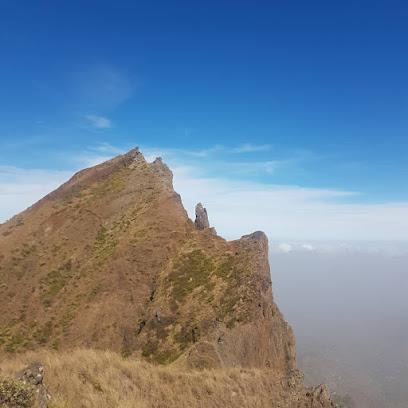
Memorial Amílcar Cabral
Explore the legacy of Amílcar Cabral and Cape Verde's journey to independence at this historical memorial in Praia.
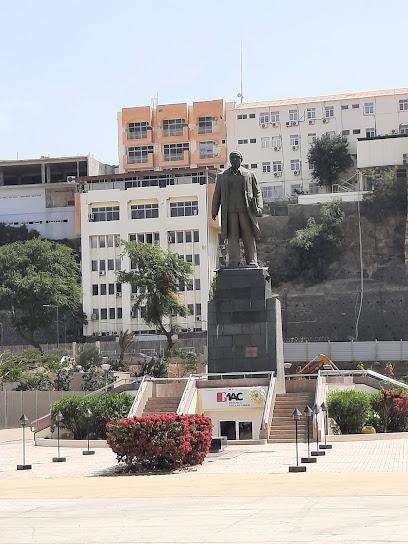
Essential places to dine
Restaurante Linha d'Água
Experience authentic Cape Verdean cuisine at Restaurante Linha d'Água - where local flavors meet breathtaking views.
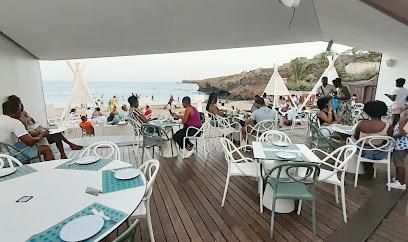
Quintal da Música
Discover Quintal da Música in Praia: A fusion of delectable cuisine and vibrant live music that embodies Cape Verdean culture.
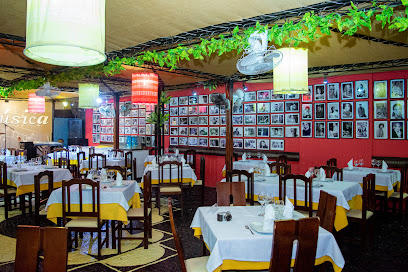
Kebra Cabana
Discover the flavors of Cape Verde at Kebra Cabana – where every meal is a celebration of local culture and cuisine.
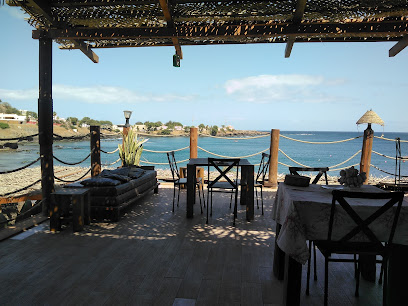
Restaurante Terrazza Italia
Experience authentic Italian cuisine amidst breathtaking views at Restaurante Terrazza Italia in Praia, Santiago.
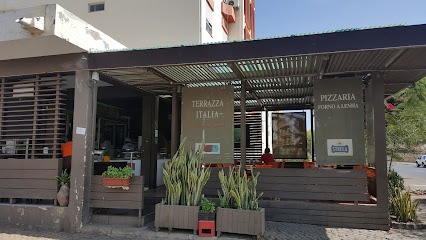
O Poeta Lounge & Food
Discover the vibrant flavors of Cape Verde at O Poeta Lounge & Food, where local ingredients meet international cuisine in the heart of Praia.
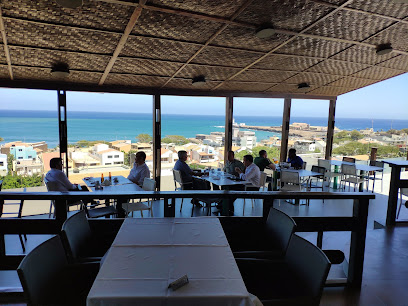
Restaurante Nice Kriola
Experience authentic Cape Verdean cuisine at Restaurante Nice Kriola in Praia – a culinary journey through local flavors and traditions.
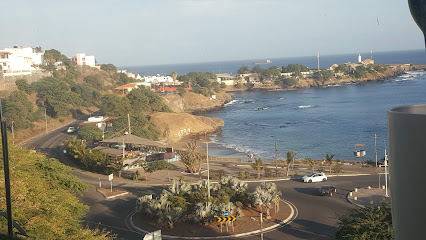
Restaurante As Campanas
Experience authentic Cape Verdean cuisine at Restaurante As Campanas in Praia - a culinary gem where tradition meets flavor.
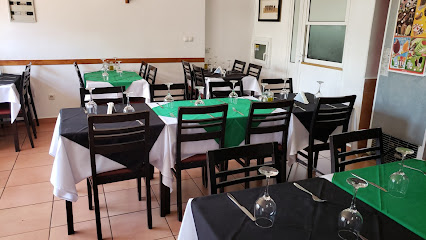
Bistro Noventa 90
Discover authentic Cape Verdean cuisine at Bistro Noventa 90 in Praia—where every dish tells a story.
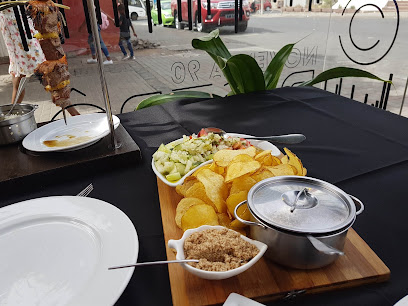
Restaurante Kaza Katxupa
Experience authentic Cape Verdean cuisine at Restaurante Kaza Katxupa in Praia - where local flavors meet warm hospitality.
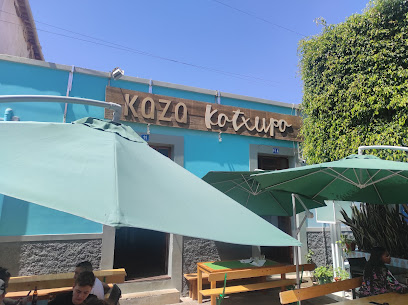
Bar Secreto Iberico
Experience the best of Cape Verdean cuisine at Bar Secreto Iberico - where vibrant flavors meet a lively atmosphere in Praia.
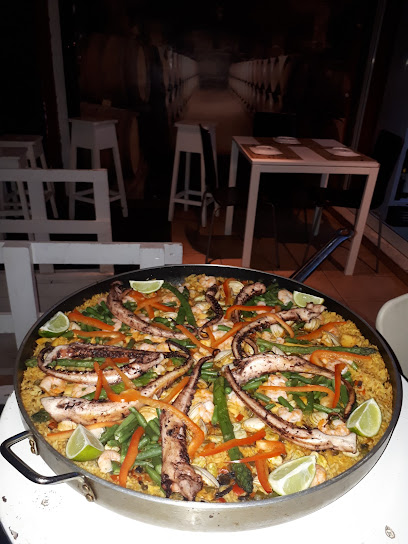
Osteria n.3
Experience the authentic taste of Italy at Osteria n.3 in Praia – where every meal is a celebration of culinary excellence.
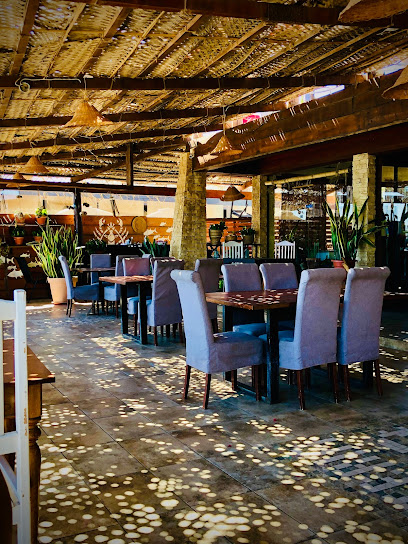
Alkimist
Discover authentic Cape Verdean flavors at Alkimist in Praia - a must-visit restaurant for food enthusiasts seeking local culinary experiences.
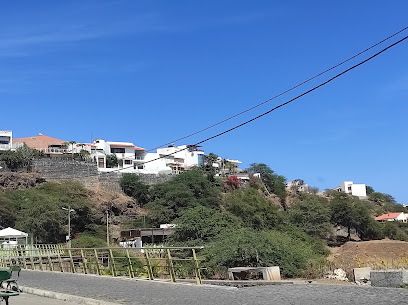
Aqva
Discover exquisite flavors at Aqva in Praia, where Cape Verdean cuisine meets vibrant hospitality for an unforgettable dining experience.
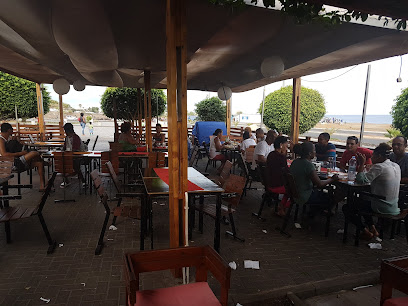
Restaurante Lótus Café
Experience authentic Cape Verdean cuisine at Restaurante Lótus Café in Praia - a delightful blend of local flavors and warm hospitality.
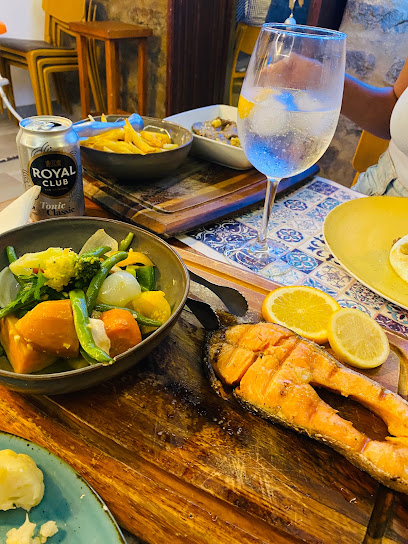
Restaurante Avis
Experience authentic Cape Verdean cuisine at Restaurante Avis in Praia, where fresh ingredients meet traditional flavors for an unforgettable dining experience.
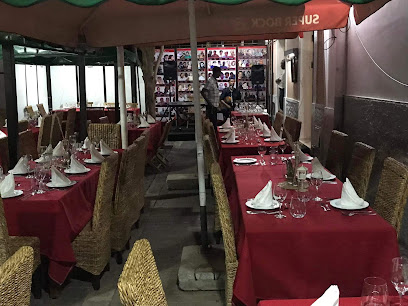
Markets, malls and hidden boutiques
Praia Shopping
Explore the vibrant Praia Shopping mall in Cape Verde for a unique blend of local culture, shopping, and dining experiences.
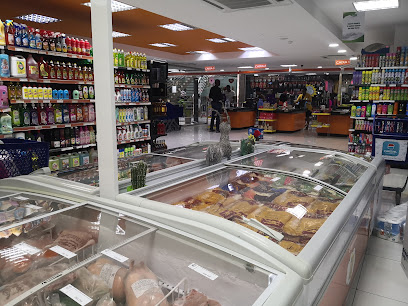
Mercado Municipal di Praia
Discover the vibrant Mercado Municipal di Praia, a cultural hub offering fresh local produce, delicious food, and handmade crafts in the heart of Cape Verde.
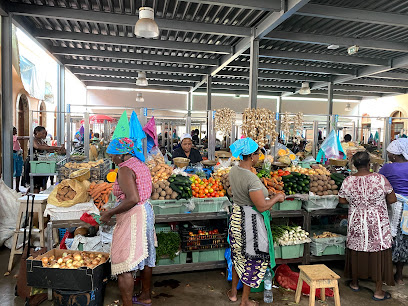
ORCA CABO VERDE
Explore a vibrant selection of quality home goods and unique local products at ORCA CABO VERDE in Praia, Cape Verde.
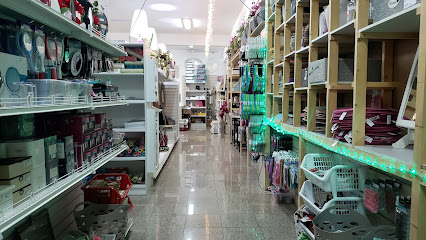
Dope Store
Experience the vibrant fashion of Praia, Cape Verde at Dope Store - where local culture meets contemporary style.
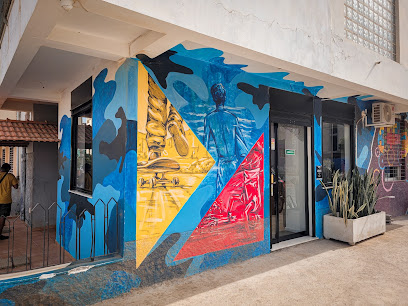
Pavilar Lda decorations and specialties
Explore the vibrant artistry of Cape Verde at Pavilar Lda, where unique furniture and decor await every traveler's discovery.
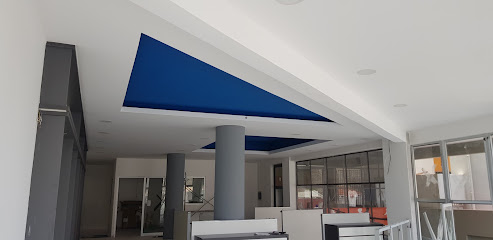
Loja Brasileira
Explore beauty and health products at Loja Brasileira in Praia, Cape Verde, your go-to destination for unique local treasures.
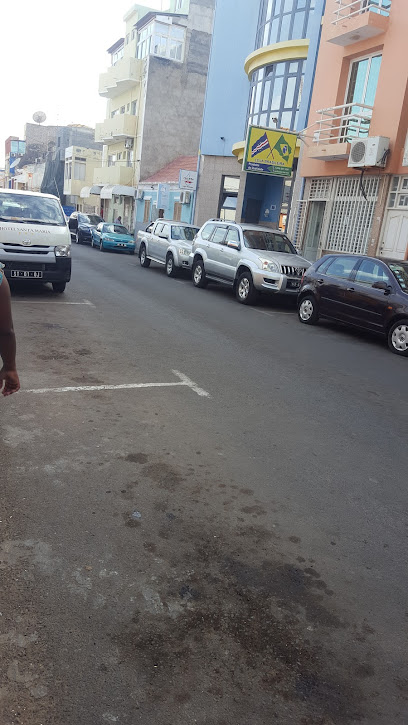
Chinês Bodona
Discover unique fashion at Chinês Bodona, Praia's premier clothing store blending local craftsmanship with contemporary style.

LOJA DESCONTO
Explore Loja Desconto in Praia for a unique selection of local tiles that embody the vibrant culture of Cape Verde.
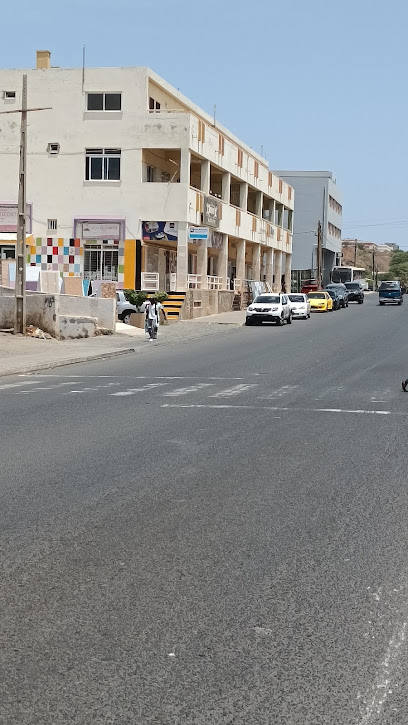
Artencanto
Explore the vibrant artistry of Cape Verde at Artencanto, where local crafts and unique home goods await every visitor.
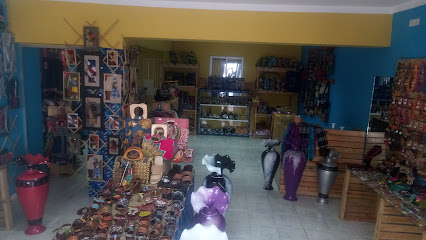
Senna Sports
Experience the vibrant fashion scene at Senna Sports, where Cape Verdean culture meets stylish clothing in Praia.
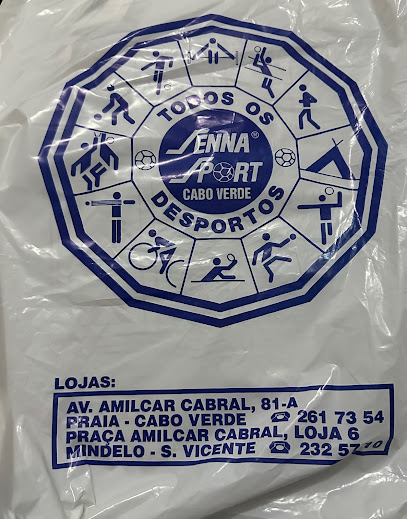
Mimos Souvenirs
Discover artistic treasures and unique souvenirs at Mimos Souvenirs in Julho Praia – a must-visit for every traveler seeking local creativity.
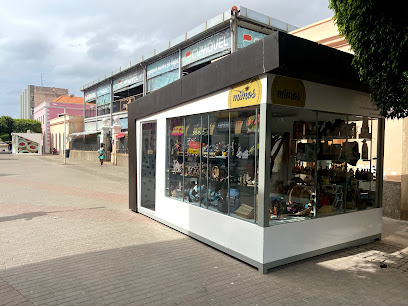
EmBrazza Clothes
Discover the vibrant fashion scene at EmBrazza Clothes in Praia, Cape Verde, where local styles meet global trends in a unique shopping experience.
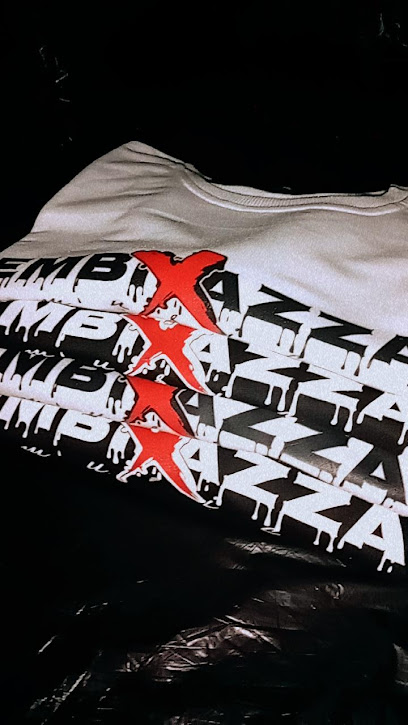
Butiki Nilda
Discover the vibrant fashion of Cape Verde at Butiki Nilda in Praia, where unique clothing and accessories await every traveler.

Loja 104
Explore Loja 104 in Praia, your go-to destination for authentic Cape Verdean gifts and unique souvenirs that celebrate island culture.
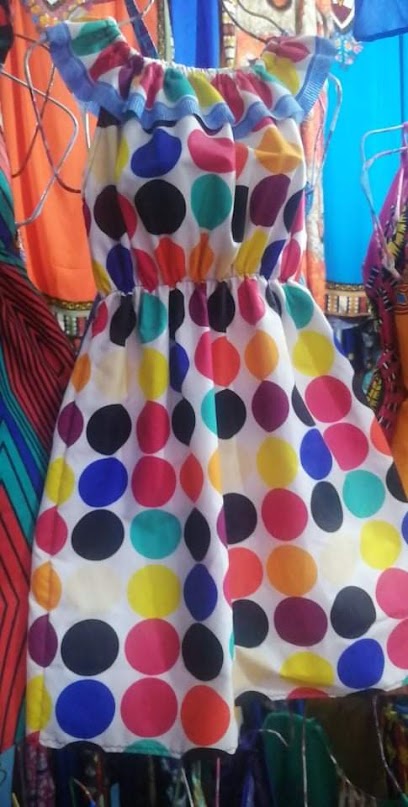
ADDICT 2331
Explore the vibrant world of youth fashion at ADDICT 2331 in Praia, where trendy styles meet Cape Verdean culture.
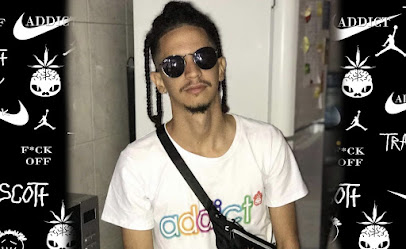
Essential bars & hidden hideouts
Kebra Cabana
Discover Kebra Cabana in Praia: a vibrant bar and restaurant offering delicious cuisine, live entertainment, and stunning ocean views for an unforgettable experience.
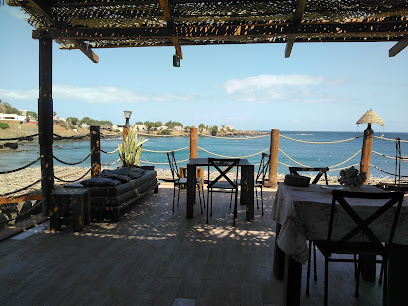
Bar Secreto Iberico
Experience the vibrant atmosphere and delicious flavors at Bar Secreto Iberico, Praia's top gastropub for tourists and locals alike.
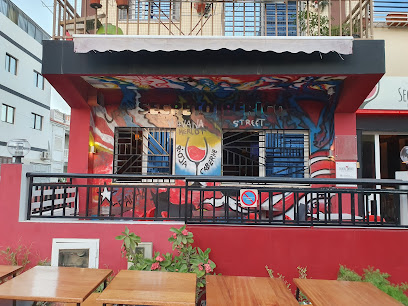
Seven Beach Club
Discover the vibrant atmosphere and stunning ocean views at Seven Beach Club, the perfect spot for relaxation and nightlife in Praia, Cape Verde.
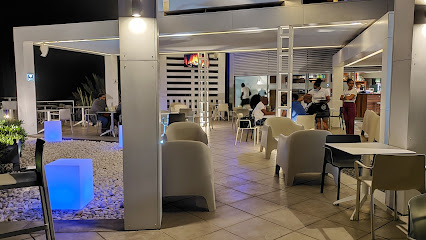
Bar Nicoli
Discover Bar Nicoli in Praia: Enjoy local drinks, vibrant atmosphere, and friendly service in the heart of Cape Verde.
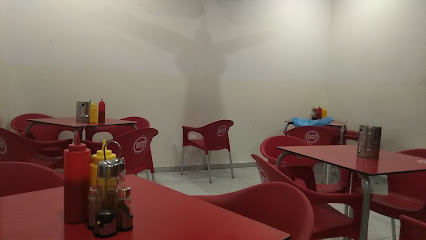
Scorpion
Discover the vibrant nightlife of Praia at Scorpion Bar, where refreshing cocktails and live music create an unforgettable atmosphere.
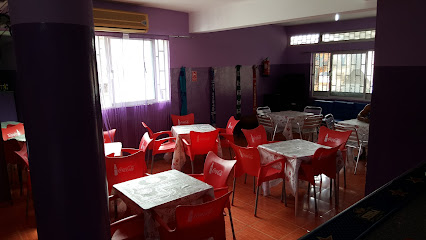
Ink Lounge - Incredible Bar, Lda
Experience the vibrant nightlife of Praia at Ink Lounge, where delicious grilled dishes and refreshing drinks meet a lively atmosphere.
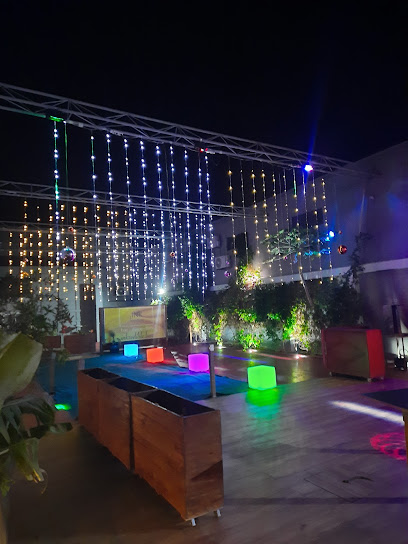
eclipse bar lounge
Discover the vibrant nightlife at Eclipse Bar Lounge in Praia, where refreshing drinks meet breathtaking views for an unforgettable evening.
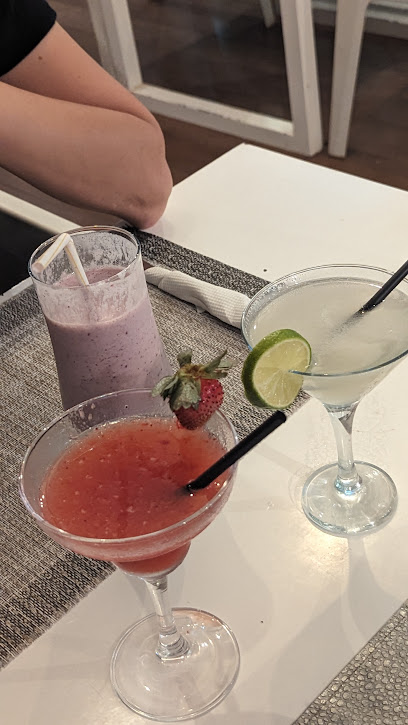
Nha Terra Bar
Experience the vibrant taste of Cape Verde at Nha Terra Bar in Praia, where delicious grilled dishes meet a lively atmosphere.

Ba Tra Bar
Discover the vibrant nightlife at Ba Tra Bar in Praia, where refreshing drinks and lively ambiance await every visitor.

Jimmy Banda Lounge Bar
Discover the lively ambiance of Jimmy Banda Lounge Bar in Praia, where exquisite cocktails and hookah meet the vibrant spirit of Cape Verde's nightlife.
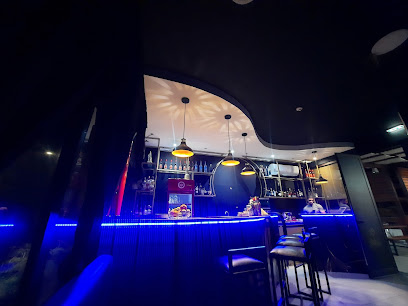
Bar Ari
Experience the lively spirit of Praia at Bar Ari, where local drinks and vibrant culture come together for an unforgettable night out.
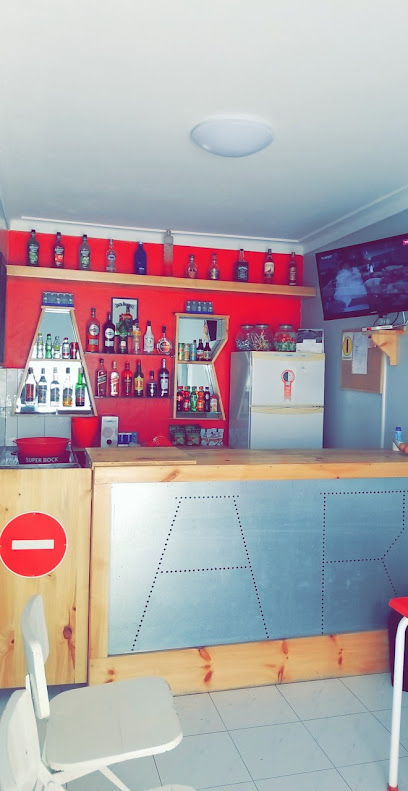
CaipVibes
Experience the vibrant nightlife of Praia at CaipVibes, the go-to bar for refreshing cocktails and a lively atmosphere.
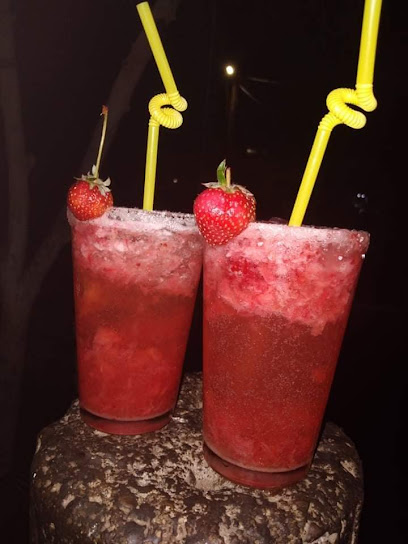
bar restaurante fatima
Experience authentic Cape Verdean cuisine at Bar Restaurante Fatima in Praia, where vibrant flavors meet warm hospitality.

Bar Restaurante Ferro Velho
Experience the vibrant flavors and lively atmosphere at Bar Restaurante Ferro Velho in Praia, the perfect spot for relaxation and local culture.

Local Phrases
-
- HelloOlá
[oh-LAH] - GoodbyeAté logo
[ah-TEH LOH-goo] - YesSim
[seem] - NoNão
[now] - Please/You're welcomePor favor/De nada
[por fah-VOHR/deh NAH-dah] - Thank youObrigado(a)
[oh-bree-GAH-doo/dah] - Excuse me/SorryCom licença/Desculpe
[kohm lee-SEN-sah/dehs-KOOL-peh] - How are you?Como está?
[KO-moo ehs-TAH] - Fine. And you?Bem. E você?
[behn/eh voh-SEH] - Do you speak English?Fala inglês?
[FAH-lah een-GLEHZ] - I don't understandNão entendo
[now ehn-TEN-doo]
- HelloOlá
-
- I'd like to see the menu, pleaseGostaria de ver o menu, por favor
[goh-stah-REE-ah deh vehr oo MEH-noo/por fah-VOHR] - I don't eat meatNão como carne
[now KOH-moo KAHR-neh] - Cheers!Saúde!
[sow-OO-deh] - I would like to pay, pleaseGostaria de pagar, por favor
[goh-stah-REE-ah deh pah-GAHR/por fah-VOHR]
- I'd like to see the menu, pleaseGostaria de ver o menu, por favor
-
- Help!Ajuda!
[ah-JOO-dah] - Go away!Vai embora!
[vah-ee ehm-BOH-rah] - Call the Police!Chame a Polícia!
[SHAH-meh ah poh-LEE-see-ah] - Call a doctor!Chame um médico!
[SHAH-meh oom MEH-dee-koo] - I'm lostEstou perdido(a)
[eh-STOH pehr-DEE-doo/dah] - I'm illEstou doente
[eh-STOH doo-EHN-teh]
- Help!Ajuda!
-
- I'd like to buy...Queria comprar...
[KWEH-ree-ah kohm-PRAR] - I'm just lookingEstou só a ver
[eh-STOH soh ah vehr] - How much is it?Quanto custa?
[KWAN-too KOOSH-tah] - That's too expensiveIsso é muito caro
[EE-soh eh MWEEN-too KAH-roo] - Can you lower the price?Pode baixar o preço?
[POH-deh BY-shahr oo PREH-soo]
- I'd like to buy...Queria comprar...
-
- What time is it?Que horas são?
[keh OH-rahs sao] - It's one o'clockÉ uma hora
[eh oo-mah OH-rah] - Half past (10)Meia hora (10)
[MAY-ah OH-rah (DEEZ)] - MorningManhã
[mah-NYAH] - AfternoonTarde
[TAHR-deh] - EveningNoite
[NOY-teh] - YesterdayOntem
[ohn-TEHM] - TodayHoje
[OH-zheh] - TomorrowAmanhã
[ah-mah-NYAH] - 1Um
[oom] - 2Dois
[doh-EESS] - 3Três
[trehs] - 4Quatro
[KWAH-troh] - 5Cinco
[SEEN-koh] - 6Seis
[sayss] - 7Sete
[SEH-teh] - 8Oito
[OY-toh] - 9Nove
[NOH-veh] - 10Dez
[dehz]
- What time is it?Que horas são?
-
- Where's a/the...?Onde é o/a...?
[OHN-deh eh oo/ah] - What's the address?Qual é o endereço?
[kahl eh oo ehn-DEH-reh-soo] - Can you show me (on the map)?Pode mostrar-me (no mapa)?
[POH-deh moh-SHAR-meh/noo MAH-pah] - When's the next (bus)?Quando é o próximo (autocarro)?
[KWAN-doo eh oo proh-KHEE-moo/ow-toh-KAH-roo] - A ticket (to ....)Um bilhete (para ...)
[oom beel-YEH-teh/PAH-rah]
- Where's a/the...?Onde é o/a...?
History of Praia
-
Praia, the capital city of Cabo Verde, was established in the late 16th century. It began as a small settlement on Santiago Island, chosen for its strategic location and natural harbor, which offered protection from pirate attacks. The settlement gradually grew into a vital port and administrative center, laying the foundation for the modern city.
-
During the 17th and 18th centuries, Praia became an important hub in the Atlantic slave trade. The city's port facilitated the movement of enslaved Africans to the Americas, and many local fortunes were built on this grim trade. This period left a lasting impact on Praia's demographics and culture, with a mix of African, European, and indigenous influences.
-
In the 19th century, Praia emerged as the administrative capital of the Portuguese colony of Cabo Verde. The city saw the construction of significant colonial buildings, including the Presidential Palace and the Nossa Senhora da Graça church, reflecting the architectural styles and administrative priorities of the time.
-
The mid-20th century was marked by the struggle for independence from Portuguese colonial rule. Praia played a central role in the independence movement, with many clandestine meetings and rallies taking place in the city. Cabo Verde finally gained independence on July 5, 1975, and Praia was established as the capital of the new nation.
-
Post-independence, Praia experienced a cultural renaissance. The city became a center for Cabo Verdean music, dance, and art, with genres like morna and coladeira gaining international recognition. Cultural institutions such as the National Library and the Ethnographic Museum of Praia were established, preserving and celebrating the nation's rich heritage.
-
In recent decades, Praia has undergone significant modernization and expansion. The city has seen infrastructural improvements, including new roads, schools, and healthcare facilities. The Plateau district, with its vibrant markets, historic architecture, and lively nightlife, has become a focal point for both residents and visitors.
Praia Essentials
-
Praia, the capital city of Cabo Verde, is primarily accessible via Nelson Mandela International Airport (RAI). Direct flights are available from major European cities, as well as from other countries in West Africa. From the airport, you can take a taxi or arrange an airport shuttle to your accommodation in the city. Ferry services are also available from other islands in the Cabo Verde archipelago, docking at the Port of Praia.
-
Praia offers various transportation options. Taxis are widely available and are the most convenient way to get around the city. For a more economical option, you can use the minibuses known as 'Hiaces' which operate on fixed routes. Car rentals are available for those who prefer driving themselves. Walking is feasible within the central areas of the city, but be cautious of traffic.
-
The official currency in Cabo Verde is the Cape Verdean Escudo (CVE). Credit cards are accepted in most hotels, restaurants, and larger shops, but it is advisable to carry cash for smaller establishments and local markets. ATMs are available throughout Praia, particularly in the city center. Currency exchange services are also available at the airport and in some banks.
-
Praia is generally safe for tourists, but like any urban area, it has its share of crime. Areas such as Achada Grande Frente and Pensamento have higher crime rates targeting tourists, so it is advisable to avoid these neighborhoods, especially after dark. Always keep an eye on your belongings, avoid displaying valuables, and use reputable taxi services. Stick to well-lit and populated areas at night.
-
In case of an emergency, dial 132 for police assistance, 131 for medical emergencies, and 133 for fire emergencies. The main hospital in Praia is Agostinho Neto Hospital, which provides a range of medical services. Pharmacies are also available for minor health issues. It is highly recommended to have travel insurance that covers medical emergencies.
-
Fashion: Do dress modestly, especially when visiting religious sites and government buildings. Avoid wearing overly revealing clothing. Religion: Do respect local customs and traditions. When visiting churches, dress appropriately and be mindful of ongoing services. Public Transport: Do be patient when using minibuses ('Hiaces'), as they can be crowded and schedules are flexible. Don't argue with drivers about fares; they are generally fixed. Greetings: Do greet people with a handshake and a smile. It is customary to ask about someone's health and family. Eating & Drinking: Do try local dishes such as Cachupa and fresh seafood. Don't refuse food or drink offered by locals, as it is considered impolite.
-
To experience Praia like a local, visit the Sucupira Market for a variety of local goods and fresh produce. Engage with locals who are often friendly and willing to share stories about their culture. Attend local festivals and music events to fully immerse yourself in the vibrant Cabo Verdean culture. For a unique experience, take a leisurely stroll along Praia's Plateau district, known for its colonial architecture and bustling street life.
Trending Landmark in Praia
-
The Pier of Santa Maria
-
Sucupira Market
-
Pachamama Eco Park - Viveiro Botanical Garden
-
Quintal da Música
-
Pestana Tropico
-
Kebra Cabana
-
Praia da Atalanta
-
São Filipe Royal Fortress
-
Parque 5 de Julho
-
Discover santiago island
-
Pelourinho
-
Bar Secreto Iberico
-
Pensão Benfica
-
Serra Malagueta Natural Park (Santiago)
-
Roma - Ristopizza
Nearby Cities to Praia
-
Things To Do in Assomada
-
Things To Do in Vila do Maio
-
Things To Do in Boa Vista
-
Things To Do in Sal Rei
-
Things To Do in Santa Maria
-
Things To Do in Espargos
-
Things To Do in Dakar
-
Things To Do in Mbour
-
Things To Do in Thiès
-
Things To Do in Gunjur
-
Things To Do in Bakau
-
Things To Do in Serekunda
-
Things To Do in Serrekunda
-
Things To Do in Lamin
-
Things To Do in Brikama











